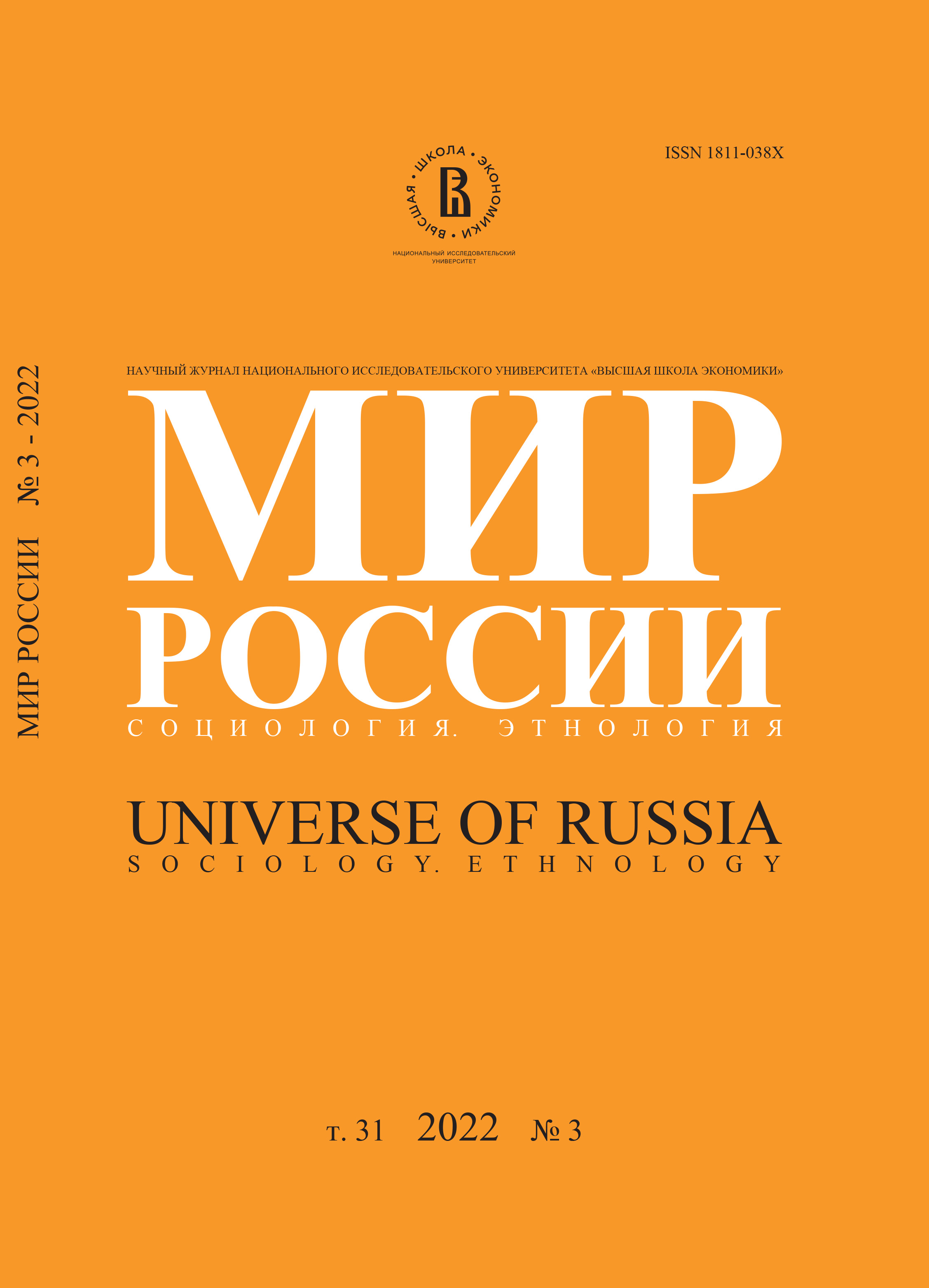Managing Emptiness or the Features of Power Relations in Inter-settlement Territories
Abstract
This article deals with the social space that falls beyond the scope of the territorial organization of power—inter-settlement territories—which appears as 'empty space' from the point of view of state managers. It analyzes the conditions under which these spaces are not only 'empty' but also invisible (in the sense that statistical observation is confined to settlements and no other data is collected for the inter-settlement territories). In inter-settlement territories, there is no management object (e.g., population, enterprises, or infrastructure), making management meaningless. However, these territories are part of the state and therefore there is a need to manage them. We designated the practices of such remote management with the term 'the periphery of power.' The latter is by no means anarchy, but a special type of power practices formed at the intersection of formal and informal ties, a special type of the mobilization of power and law in these spaces. We describe and analyze such practices, including how the population on such territories (both formally present and 'invisible') become subjects and objects of management, and how they form self-governing communities.






